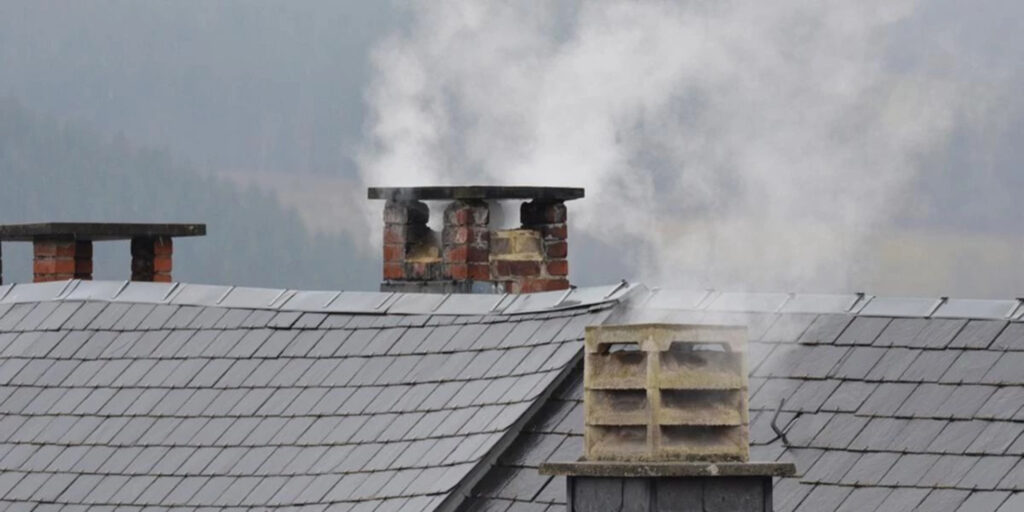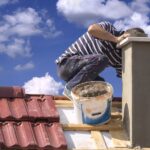Introduction: Why Should Homeowners Prioritize Chimney Inspections?
A chimney inspection is a crucial aspect of home maintenance that many homeowners overlook. Regular inspections can prevent potential hazards, ensure efficient heating, and prolong the lifespan of your chimney system. This guide provides a detailed checklist to help you assess your chimney’s condition and understand when professional intervention is necessary.
Why It Matters: The Importance of Regular Chimney Inspections
Neglecting chimney inspections can lead to serious safety risks, including chimney fires, carbon monoxide poisoning, and structural damage. Regular inspections help identify issues like creosote buildup, cracks, or blockages early, allowing for timely repairs and ensuring your chimney operates efficiently.
Common Problems Homeowners Face with Chimneys
Homeowners often encounter several common chimney issues:
- Creosote Buildup: A highly flammable substance that accumulates from burning wood, increasing fire risk.
- Cracked Flue Liners: Damaged liners can lead to heat transfer to combustible materials, posing fire hazards.
- Obstructions: Debris, nests, or soot can block airflow, leading to poor ventilation and potential carbon monoxide buildup.
- Damaged Chimney Cap: A compromised cap allows water, animals, and debris into the chimney, leading to rust and blockages.
- Masonry Deterioration: Cracked or missing bricks and mortar joints can weaken the chimney structure.
Key Benefits of Regular Chimney Inspections
Conducting regular chimney inspections offers several advantages:
- Enhanced Safety: Early detection of issues reduces the risk of fires and carbon monoxide exposure.
- Improved Efficiency: A well-maintained chimney ensures optimal airflow, enhancing heating efficiency.
- Cost Savings: Identifying and addressing minor problems early can prevent costly repairs in the future.
- Extended Lifespan: Regular maintenance prolongs the life of your chimney and fireplace system.
The Role of Chimney Cap and Flue Inspection
The chimney cap and flue are integral components of your chimney system:
- Chimney Cap: Prevents rain, debris, and animals from entering the chimney, which can cause blockages or rust.
- Flue Inspection: Ensures the flue is clear of obstructions and in good condition to allow proper venting of smoke and gases.
Regular inspection of these parts helps maintain chimney safety and efficiency.
A Professional Quote
According to the Chimney Safety Institute of America (CSIA), “A Level 1 inspection is recommended for a chimney under continued service, under the same conditions, and with the continued use of the same appliance.” csia.org
Cost Breakdown: Understanding Chimney Inspection Expenses
| Service Type | Estimated Cost Range |
|---|---|
| Level 1 Inspection | $100 – $200 |
| Level 2 Inspection | $200 – $300 |
| Chimney Sweeping | $150 – $250 |
| Repairs (Minor) | $100 – $500 |
| Repairs (Major) | $500 – $1,500+ |
Disclaimer: Costs may vary based on location, chimney condition, and service provider.
Key Features to Look for During an Inspection
When inspecting your chimney, focus on the following features:
- Flue Liner Condition: Check for cracks or signs of wear.
- Damper Functionality: Ensure it opens and closes properly.
- Firebox Integrity: Look for cracks or damage.
- Masonry Stability: Inspect for loose bricks or mortar joints.
- Chimney Cap Condition: Verify it’s intact and secure.
- Ventilation: Ensure proper airflow throughout the system.
Safety Considerations During Chimney Inspections
Safety is paramount during chimney inspections:
- Use Proper Equipment: Wear gloves, masks, and safety glasses.
- Avoid DIY Repairs: Leave repairs to professionals to prevent accidents.
- Check for Carbon Monoxide: Ensure detectors are functional and placed near the chimney.
- Secure the Area: Keep the inspection area clear of flammable materials.
Emergency Services: When to Call a Professional
Contact a professional immediately if you notice:
- Strong Odors: Persistent, foul smells emanating from the chimney.
- Visible Smoke: Smoke entering the home when the fireplace is in use.
- Unusual Noises: Cracking, popping, or animal sounds from the chimney.
- Water Damage: Signs of leaks or water stains around the chimney area.
- Obstructions: Debris or nests blocking the chimney.
Conclusion: Ensuring Chimney Safety and Efficiency
Regular chimney inspections are essential for maintaining a safe and efficient home heating system. By following the checklist provided and addressing any issues promptly, you can enjoy the warmth and comfort of your fireplace without worry. Remember, when in doubt, always consult a professional to ensure your chimney is in optimal condition.
Call to Action: Schedule your annual chimney inspection today to ensure the safety and efficiency of your home’s heating system.
FAQs: Common Questions About Chimney Inspections
1. How often should I have my chimney inspected?
It’s recommended to have your chimney inspected at least once a year, preferably before the heating season begins.
2. Can I inspect my chimney myself?
While you can perform a basic visual check, professional inspections are necessary to identify hidden issues.
3. What is creosote, and why is it dangerous?
Creosote is a flammable byproduct of burning wood. Accumulation can lead to chimney fires if not removed regularly.
4. How can I prevent animals from entering my chimney?
Install a chimney cap to block animals and debris from entering.
5. What should I do if I notice smoke entering my home?
Ensure the damper is open and unobstructed. If the problem persists, contact a professional.
6. Are chimney inspections covered by homeowners insurance?
Coverage varies. Check with your insurance provider to understand your policy.
7. What is a Level 1 chimney inspection?
A Level 1 inspection is a basic visual assessment of the chimney’s accessible parts.
8. How can I tell if my chimney cap is damaged?
Look for rust, cracks, or missing parts. A damaged cap can lead to water damage and blockages.
9. What are the signs of a chimney fire?
Loud cracking noises, a hot chimney exterior, or a strong odor can indicate a chimney fire.
10. Can I clean my chimney myself?
DIY cleaning is possible but not recommended due to safety risks. Professional cleaning ensures thorough removal of hazardous buildup.
Read More: Chimney Sweep Phoenix


